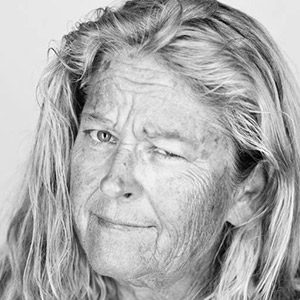Much ado has been made of Karen lately. A once innocuous name, “Karen” recently has become shorthand, a term used to refer to white, typically affluent, middle-aged women.
“Karen is the embodiment of entitlement and privilege — the first person to demand to speak with a manager when things don’t go her way. At best, Karen is not happy with the quality of the tomatoes on her salad. At worst, she’s calling the police on black men for their indiscretion of existing in her proximity,” states an online definition of the new term.
Different origins of the term have been suggested, but the predominant connotation developed as a humorous means of shorthand for people of color to express their frustrations. In the current moral climate, as people of color and their allies fight for visibility, Karen memes have surged, providing a modicum of comedic relief at a time of pervasive and understandable grief and anger.
As the term becomes more prevalent, though, how do the actual named Karens of the world feel about their new forename fame? I asked four decidedly un-Karen Karens for their take on the term…
 Karen Luknis, owner-captain of Venus Charters, said she’s just about ready to change her name to remind people that she doesn’t fit the stereotype. “It in no way resembles me, but I think it’s a fair portrayal of those awful Karens! I do wish they would call them something else, but I can take a joke.”
Karen Luknis, owner-captain of Venus Charters, said she’s just about ready to change her name to remind people that she doesn’t fit the stereotype. “It in no way resembles me, but I think it’s a fair portrayal of those awful Karens! I do wish they would call them something else, but I can take a joke.”
 Key West photographer Karen Ludwig-O’Leary also sees the humor in the barb. “I think the whole Karen thing is hysterical. It’s so funny because it’s true. It’s all about bitchy, white, privileged, spoiled-brat women demanding their way,” she said. “I don’t mind it because I know I am so NOT a ‘Karen,’ so no offense taken. Now don’t get me wrong — I am a strong, New York-born, assertive woman and am not shy about asking for what I want. But I would like to think my way is respectful and kind.”
Key West photographer Karen Ludwig-O’Leary also sees the humor in the barb. “I think the whole Karen thing is hysterical. It’s so funny because it’s true. It’s all about bitchy, white, privileged, spoiled-brat women demanding their way,” she said. “I don’t mind it because I know I am so NOT a ‘Karen,’ so no offense taken. Now don’t get me wrong — I am a strong, New York-born, assertive woman and am not shy about asking for what I want. But I would like to think my way is respectful and kind.”
 Jewelry designer Karen Moore said she just learned about the new use of her name and finds it “f—ing funny.” She admits to wanting what she wants, but approaches everything from a place of compassion. “I am a girl who’s not afraid to speak out and speak up, but I am discerning and respectful. My friends say I use it for the good of others, rather than to serve myself. I still don’t see myself as a Karen, more of a person who cares. I have always said my whole life, I can’t help it – it is in my name, ‘Kare’.”
Jewelry designer Karen Moore said she just learned about the new use of her name and finds it “f—ing funny.” She admits to wanting what she wants, but approaches everything from a place of compassion. “I am a girl who’s not afraid to speak out and speak up, but I am discerning and respectful. My friends say I use it for the good of others, rather than to serve myself. I still don’t see myself as a Karen, more of a person who cares. I have always said my whole life, I can’t help it – it is in my name, ‘Kare’.”
 Karen Stewart, a St. Louis-based racial justice scholar, has also chosen to lean toward lighthearted acceptance rather than offense. “For anyone to claim it as a slur is, ironically, peak Karen behavior,” Stewart said. “And if anyone disagrees with me, I am taking it up with the manager!” While she’s laughing along, though, she’s also unpacking the connotations, and brief history, of the word on her nametag.
Karen Stewart, a St. Louis-based racial justice scholar, has also chosen to lean toward lighthearted acceptance rather than offense. “For anyone to claim it as a slur is, ironically, peak Karen behavior,” Stewart said. “And if anyone disagrees with me, I am taking it up with the manager!” While she’s laughing along, though, she’s also unpacking the connotations, and brief history, of the word on her nametag.
“Men’s names are also hijacked by popular culture (Uncle Tom, Stan). What makes Karen different is the always-negative social context now ascribed to the name. I initially winced when it became shorthand for rude, ignorant, olderish white women, yet couldn’t deny there was more than a hint of truth behind what the name represented. Karen stings personally because I’ve dedicated much of my life to dismantling white supremacy in myself, others, my students and in our institutions and policy, and the name is often used when white women have openly demonstrated their racist beliefs. If my name can help point out and focus a conversation on dismantling white supremacy, though, I am beyond grateful to play even a small role in making that happen.”
Our four Karens agreed it’s not really about the name, but about the behaviors the name describes — a funny moniker that hopefully may prod women to acknowledge their privilege and use it to better ends. If the Karen phenomenon pushes us along through some well-intentioned teasing, it’s probably worth the trade-off for those women who have temporarily lost the name lottery. For the moment, while they endure the brunt of the joke, let me say — I’m sorry, Karen. And Karen. And Karen. And Karen.


























